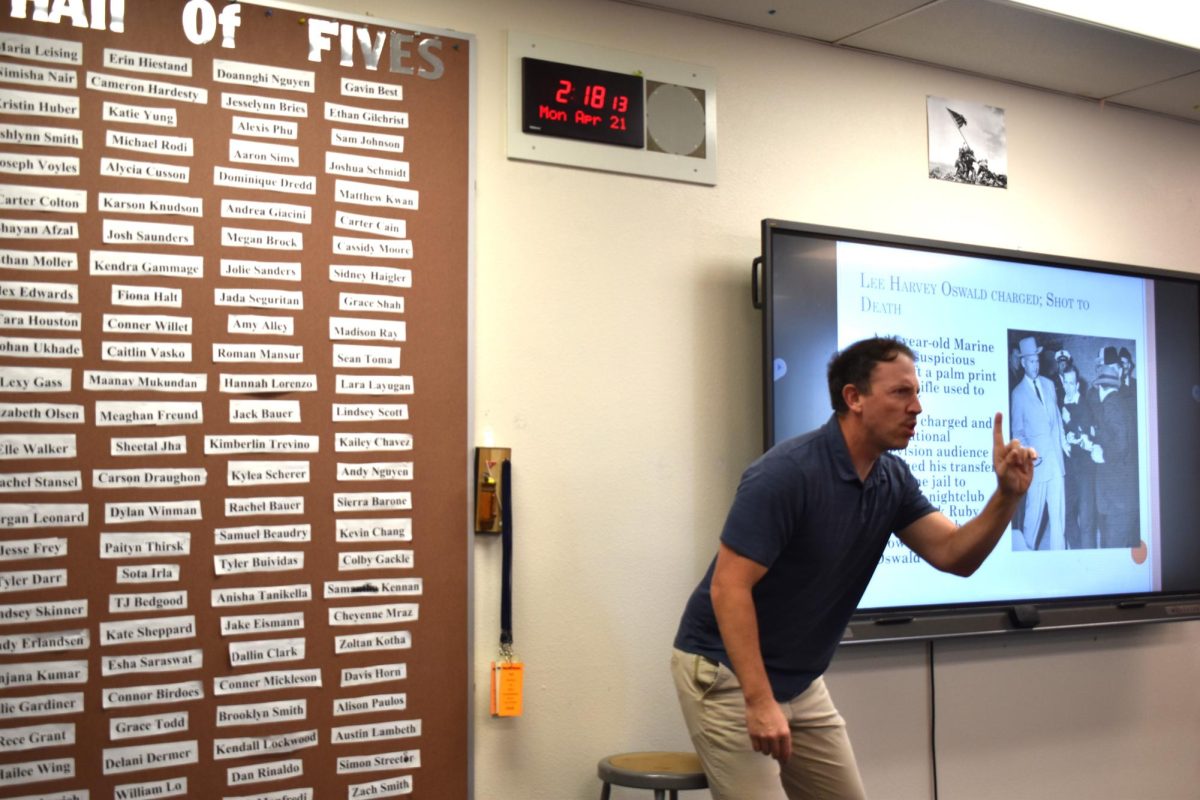As May rushes closer, the stress of national Advanced Placement (AP) exams piles up with frantic last-minute studying and sleepless nights. In two months, as the results appear on Collegeboard, students will feel a rush of disappointment or relief, but are these scores truly a reflection of students’ hard work or merely their educators?
Teachers who teach AP classes play a significant role in shaping students’ education. Not only are they required to teach content-heavy college-level material, but they also prepare the students for the national exam in May. This requires teachers to review exam strategies, conduct practice tests, and even hold study sessions after school, putting an extra burden on the teachers to prepare their students for exam day better. Students rely on their teachers to score better on their AP exams in order to qualify for college credit. Because the material and workload are so demanding, it is nearly impossible for students to self-study all the material outside of school without the guidance of an instructor. This means that teachers are crucial in directing students to success in their AP classes.
The AP exams, like the national SAT and ACT exams, are a reflection of how well students and teachers perform compared to other schools in the nation. It is also reflective of the quality of the school as a whole. The stress of performing well on AP exams is immense for students and the school alike. Because AP courses generally contain harder content to teach, teachers are given incentives to boost their students’ scores. In many Arizona school districts, for example, the “College Credit by Examination Incentive Program” provides bonuses for teachers for each four and five score achieved by their students. The district recognizes this role and motivates teachers to increase students’ chances of achieving a higher score on this test.
Although many teachers do fulfill their duty and make students feel thoroughly prepared, some teachers express an uninterested attitude in teaching. A poll from the Pew Research Center states that only one in three teachers feel very satisfied or extremely satisfied with their jobs. Learning difficult material under these teachers can further unmotivate the students to learn the material. Most students find AP courses daunting in the first place, but without an engaging teacher and learning environment, most students simply cannot keep up with the amount of work they have to complete in front of them.
Teachers who are uninterested in teaching are more likely to give generalized instead of stricter grades. Most teachers want their students to simply pass their classes and have a good GPA. Students scoring a high A in a class can score low on an AP test. In this scenario, AP scores are a better reflection of the students’ actual ability and performance than GPAs. The AP score reflects the teacher’s capacity because it reveals students’ actual standing under the mask of their GPA. When the GPA is higher compared to the AP tests, it reflects the true ability of the teacher and if they are just handing out shiny grades on paper.
However, students do play a part in the success of their scores. Students have to take the initiative to listen in class, complete their school work, get their notes done, and maybe participate in the study sessions the teacher offers. Nevertheless, for most students, there is a limit to the studying students can do outside of the classroom. Educators boost students’ chances of success by teaching them effective studying tips and strategies to excel in their class, and even by offering online resources. Without a hardworking teacher, students must spend more time outside of class to prepare for their tests voluntarily and find the resources on their own.
Although educators play a major role in students obtaining high AP test scores, it does not imply that students should not participate in extra studying or give up completely. Teachers can offer resources and teach to the best of their ability, but students should care about their grades more than their teachers do. Students need to absorb that information and thoroughly process it to make it their own. Although frantic last-minute studying and caffeine may not work, thorough preparation will pay off on exam day.



